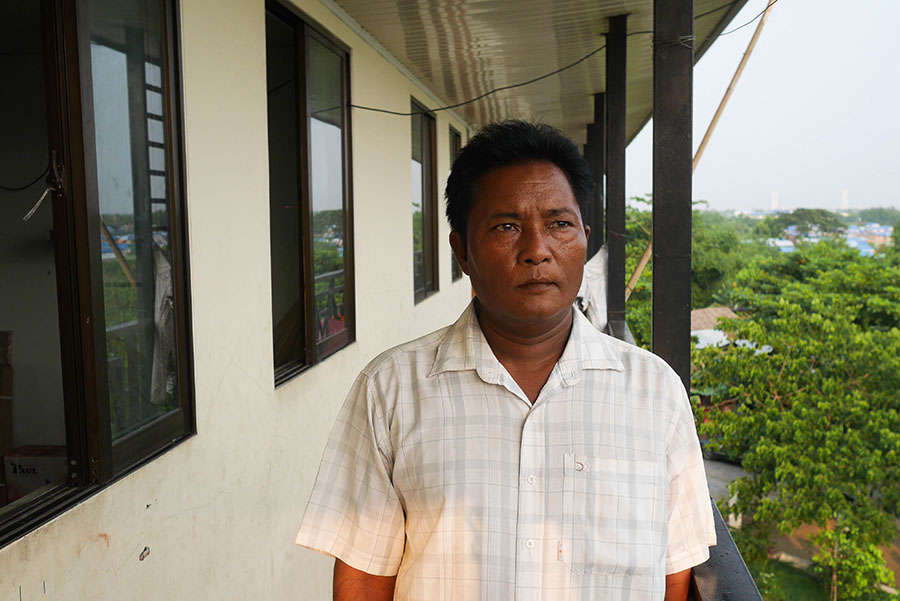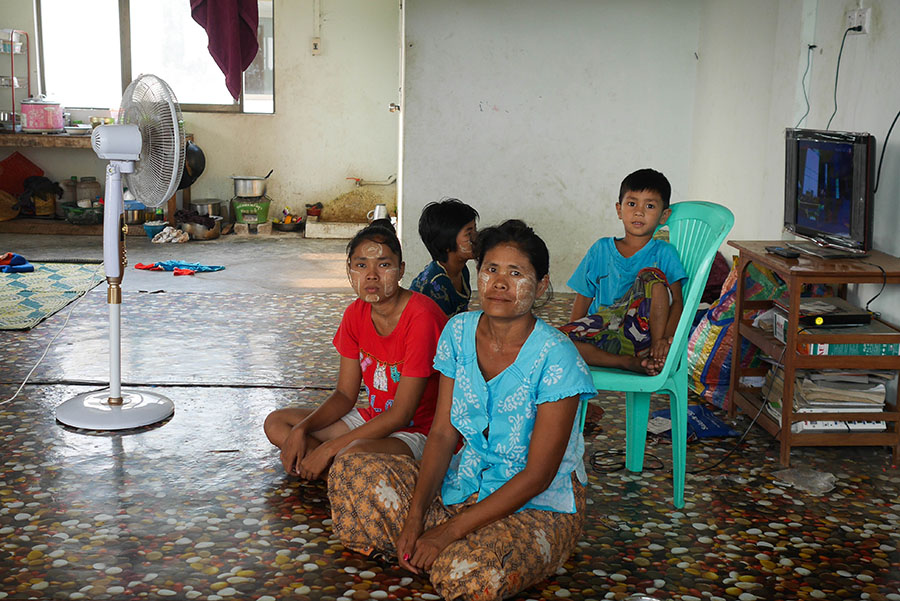RANGOON — Refugees from Burma who were repatriated from Thailand to commercial capital Rangoon late last year have settled into their housing arrangements on the outskirts of the city and are urging the government to consider the schooling arrangements of refugees’ children in planning future repatriations.
The seventeen returnees in Rangoon are among the first batch of 65 who were repatriated to Burma via the Myawaddy-Mae Sot Friendship Bridge from Nu Po camp on the Thai-Burma border in late October. Six other returnees were repatriated through the Thai-Tenasserim Division border. The governments of Thailand and Burma, the UN refugee agency (UNHCR), and the International Organization for Migration collaborated in the process.
Those in Rangoon belong to four families, and purchased 9.8 million kyats worth of housing in the Shwe Linn Ban Industrial Zone in Hlaing Tharyar Township, by paying 1 million kyats (US$761) up front and the rest over eight years, according to an agreement with the government.

In late December, three out of the four families had moved to the housing project’s 18×20-foot apartments, approximately a one-and-a-half-hour drive from downtown Rangoon.
The Irrawaddy visited one of the returnees, U Aye Lwin, a 46-year-old father of six, who took refuge at Nu Po camp from 2008 to 2016, at his Hlaing Tharyar house on Wednesday. He said he now works as a construction worker, earning 9,500 kyats ($7) per day.
While having been part of the country’s revolutionary movement makes him proud, U Aye Lwin said he also feels guilty that his children could not get a proper education due to his political activism.

“There are many disadvantages regarding the children’s education,” he said, explaining how his children couldn’t get an education at the camp which would be recognized by the Burmese government, and how, after arriving in Rangoon, they have been unable to attend school as they awaited provisions for long-term accommodation by the regional government. Initially, they stayed at a temporary shelter provided by the Ministry of Social Welfare, Relief and Resettlement.
“The government should prepare for the second batch returnees by learning lessons from our first batch’s experience,” he said, urging the government to repatriate the second batch during the children’s summer school break—from March until June.
He is also not sure whether they will be able to enrol the children in school in June, as the certificates his children received from the camp are not recognized in Burma.
His 17-year-old daughter, who finished seventh grade at the camp in Thailand, said that she won’t continue school in Rangoon because she doesn’t want to learn with much younger students who will be around 11 years old.
U Aye Lwin told The Irrawaddy that two of his children—his elder daughter and 15-year-old son—are also working at a nearby beauty salon and a rice shop, respectively, and contributing to the family’s income.
“I feel really sad seeing them out there working when they should be in school,” he said.

The other families were not available to meet with The Irrawaddy on Wednesday.
According to the Ministry of Social Welfare, Relief and Resettlement, each family had received 300,000 kyats ($221) from the government, and the Thai government offered 8,300 baht ($239) per adult and 6,500 baht ($187) per child before leaving Thailand.
Permanent secretary U Soe Aung of the Ministry of Social Welfare, Relief and Resettlement told The Irrawaddy that he still has no information about when a second batch of repatriated refugees would arrive.

















